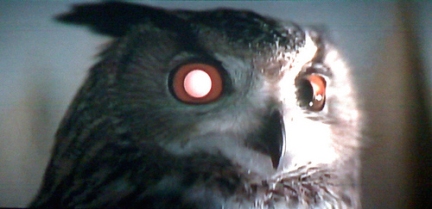Note this blog entry contains spoilers about the final two Harry Potter books
It’s a truism that cinematic adaptations often pale besides their literary counterparts. An obvious counterexample is Ridley Scott’s Blade Runner but, off the top of my head, I can’t think of more. For those who’ve only seen the film, it’s well worth reading the Philip K. Dick’s Do Androids Dream of Electric Sheep? to see just how different it is, but to explain some elements of the screen version you’d have to gloss over otherwise.
A wonderful thing about a book is that everyone’s idea of it is unique. The reader converts the printed word from the page into a world of their own imagination. How I see the Imperial Palace on Melania in my head, is different from any readers of the Johnny Mackintosh books. Perhaps that’s why film adaptations so often disappoint, as the Director is competing with thousands of movies that have already run within a reader’s head.
There’s no film I can remember that’s disappointed me more that Harry Potter and the Half-Blood Prince, directed by David Yates with a screenplay by Steve Kloves. As someone who loves the stories so deeply, it horrifies me that this pairing were also asked to make the double film of the final book. While I think the quality of film-making in Harry Potter and the Half-Blood Prince isn’t terrible (though it is weak), what I can’t fathom were the drastic, totally unnecessary changes to the plot that were introduced, diverting from Rowling’s marvellous story architecture and characterization.
[spoiler alert]
With a long book, why introduce a mad scene where Bellatrix Lestrange destroys The Burrow? Where will they hold the wedding in the next film, or has that been scrapped too?
A more important example was the death of Dumbledore. In the book, Harry is powerless to act, hidden under the invisibility cloak with Dumbledore’s body-bind curse on him. He would do anything to fight to save his pseudo-grandfather figure, and knows all too well the Hogwarts Headmaster is dead when the curse lifts. If the film, Harry is hiding in the background, and chooses simply to watch and not act, perhaps due to some bizarre element of cowardice that Yates and Kloves wanted to introduce into Harry’s character. There are numerous other examples and a lot concerning Dumbledore’s relationship with Harry: in the books, our hero is kept in the dark and has o puzzle things out for himself; according to this film, Harry is Dumbledore’s confidant.
When I write the Johnny Mackintosh books, I confess I sometimes have a secret nod to possible future film adaptations. I know a fair amount about film theory and structure, and sometimes I’ll be particularly proud of a passage because I know how well it would translate onto the big screen. I see the same in Jo Rowling’s writing at times, where she’s gone a little out of her way to write a beautiful, cinematic scene for her directors, knowing how much it would enhance the film. Yates completely ignored this. There ar
Add a Comment



